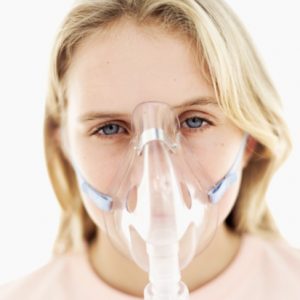 Any respiratory ailment is uncomfortable and if serious enough, can become life-threatening. Unfortunately, we are surrounded by all sorts of offenders that can lead to respiratory damage. In fact, there are so many that it can be difficult at times to determine just what is causing our lung function to deteriorate.
Any respiratory ailment is uncomfortable and if serious enough, can become life-threatening. Unfortunately, we are surrounded by all sorts of offenders that can lead to respiratory damage. In fact, there are so many that it can be difficult at times to determine just what is causing our lung function to deteriorate.
The Damage Caused
There are both indoor and outdoor respiratory offenders to consider. They can target you depending on your genetic make-up and on your overall general health. For instance, if you already have a weak immune system, the risk of contracting a respiratory ailment thanks to one of these offenders is much higher. Below is a list of the top respiratory offenders.
- Allergens
- Molds
- Tobacco Smoke
- Air pollutants
Advertisement
Allergens
Outdoor allergens include pollen, fern spores, soy dust, and fungi. Particles are released from sources into the air by wind, rain, and mechanical disturbances. It is difficult to avoid outdoor allergens. Indoor allergens include dogs, cats, dust, molds and fungi. Both indoor and outdoor allergies are closely connected to asthma. Studies show allergies to pets for example, can trigger asthma. Over 20 million people in the United States suffer from asthma.
Simple house cleaning can go a long way in significantly reducing allergen levels in your home and reducing damage to your lungs.
- Wash bedding in hot water
- Put allergen-impermeable covers on all your pillows, box springs and mattresses
- Vacuum and steam clean upholstered furniture
- Vacuum and steam clean carpets
Mold
Breathing in mold spores for many people causes a mild allergic reaction. For others it can have a huge effect on lung function. For instance, it can trigger serious asthma attacks.
The Effects on Your Immune System
Some people believe that something called “black mold” can cause fever, rashes, coughing, severe headaches and even bleeding lungs. According to the Mayo Clinic there is evidence to suggest that breathing “black mold” spores create a lot of damage to lung function, but more research is warranted.
Tobacco Smoke
Decades of research has shown that smoking or exposure to tobacco has health risks, including respiratory disease. Now the University of Arizona has conducted a study that shows the health risks can continue well beyond childhood for those who are exposed to second hand smoke. The research indicates that kids exposed to second hand smoke through their parents had an increased risk of chronic respiratory illness and “lung function deficits” later in their lives.
Aside from cancer and heart disease, smoking is linked to chronic obstructive pulmonary disease or COPD, chronic lung infections, emphysema, and chronic bronchitis. Health organizations around the world spend millions on programs to help people quit smoking.
Advertisement
According to the Environmental Protection Agency, a commitment to better air quality standards will save millions of American from certain death. Countless studies have linked air pollution to asthma, bronchitis and a long list of other respiratory illnesses. Data collected from researchers at the University of Southern California suggests that exposure to pollutants from vehicles and fossil fuels may hurt lung development and diminish breathing capacity for a lifetime.
Damage from air pollution has been well publicized. The American Lung Association has stated that despite environmental efforts, millions of people face unsafe pollution levels daily. Smog not only creates poor lung function, it can cause further damage to those who already suffer from ailments like bronchitis, asthma and emphysema.
Environment conscious individuals and health care professionals agree that we all should do our part to rid the atmosphere of these respiratory offenders. We can quit smoking, ride our bikes to work instead of driving, follow simple house cleaning tips, and have our homes and offices tested for mold. A few steps and we can all breathe easier.
